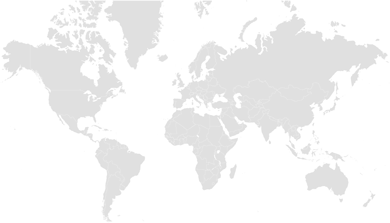Case study
2024 • Ecocitrus Promoting Organic Agriculture in Brazil
Ecocitrus, an organic citrus farmers’ cooperative in Montenegro, Brazil, integrates waste management and organic agriculture. Using a composting and biogas facility, the cooperative processes agro-industrial and organic waste into compost, biofertilizers, and biogas for use in farming and energy generation. Ecocitrus supports sustainable agriculture by offering cost-effective, high-quality compost products to its members and commercial markets, contributing to Brazil’s growing organic agriculture sector.
Recovered Materials & Products
Biogas
Compost
Waste Streams
Organic solid waste
Confirmed countries
Afghanistan


Background and Context
Location: Montenegro, Brazil
Resource Stream: Organic and agro-industrial waste, including citrus peels and residues from 200 industries nearby.
Challenges: Brazil generates 183,482 tonnes of municipal solid waste (MSW) daily, with over 51% being biodegradable. However, only 1.2% of this is processed in composting facilities, highlighting the need for improved organic waste management. Ecocitrus was founded to address these challenges while promoting organic agriculture and minimizing environmental impacts from citrus farming waste.
Technologies/Methods Used
Composting Facility: Processes citrus residues and agro-industrial waste into high-quality compost for agricultural use.
Biogas Plant: Converts organic waste into biogas, generating 20,000 m³/day of compressed natural gas (CNG), pending commercialization.
Certification Processes: Participatory Guarantee System for small-scale farmers ensures compliance with organic agriculture standards.
Implementation Steps
In the early 1990s, 14 citrus farmers founded Ecocitrus with governmental and international support to focus on organic citrus production. They established a composting and biogas facility to process waste sustainably and produce high-quality compost and fertilizers. To achieve market integration, they distributed products to cooperative members, organic agriculture markets, and conventional agricultural markets, using eco-labels and certification.
Outcomes and Impacts
Environmental Benefits: Diverted waste from landfills to create nutrient-rich compost, reducing greenhouse gas emissions.
Promoted sustainable waste practices in agriculture and industry.
Economic Contributions: Generated revenue through compost and liquid biofertilizer sales. Sold compost at competitive rates; BRL 50–80/MT for agricultural use and smaller bags for household use (e.g., BRL 3 per 3 kg bag).
Social Impact: Enhanced livelihoods for cooperative members and nearby farmers by providing affordable, high-quality agricultural inputs. Increased awareness and adoption of organic agriculture practices in the region.
Lessons Learned
The Ecocitrus model demonstrates the value of integrating waste recovery into organic agriculture. Key factors for success include robust cooperative structures, a focus on quality standards, and diversified revenue streams. Challenges remain in scaling biogas production and maintaining competitiveness against subsidized chemical fertilizers.
Learn more
This case study is extracted from the publication linked below: "Sustainable Financing and Policy Models for Municipal Composting. World Bank (2016)"
https://openknowledge.worldbank.org/entities/publication/e1aac77a-5258-5927-9268-847c754cb9f5
Technologies
Composting
Themes
Financing and investment